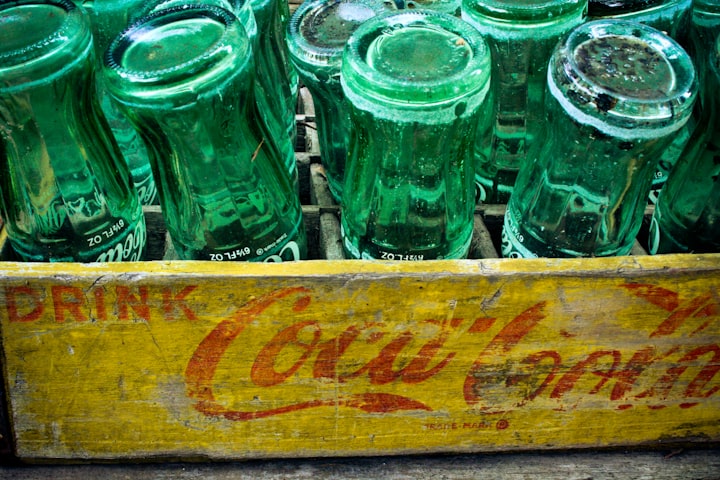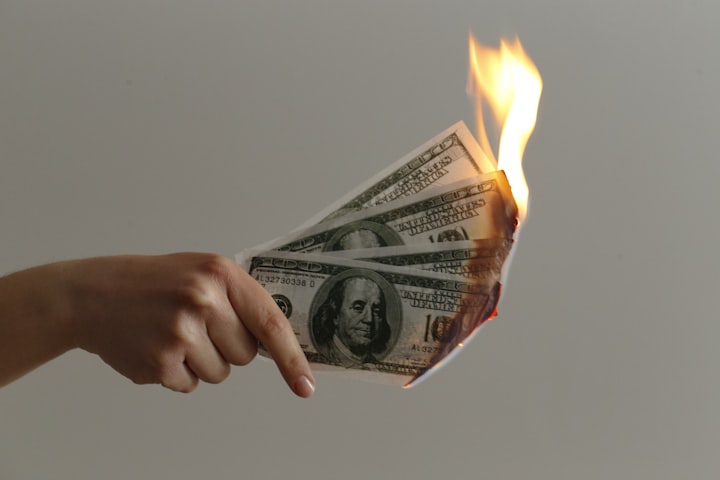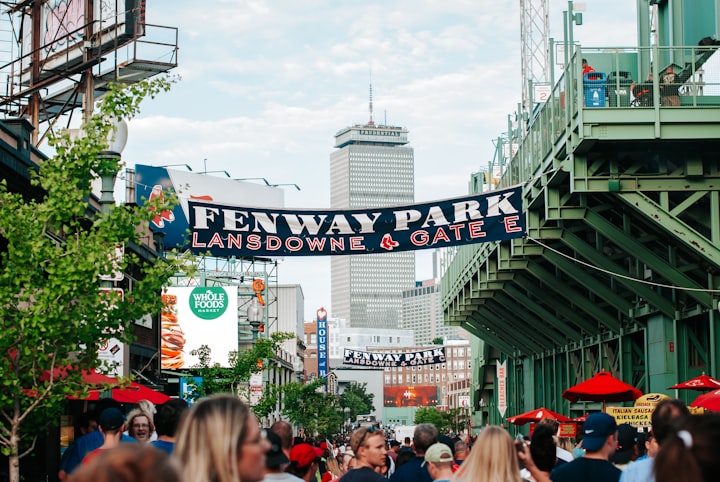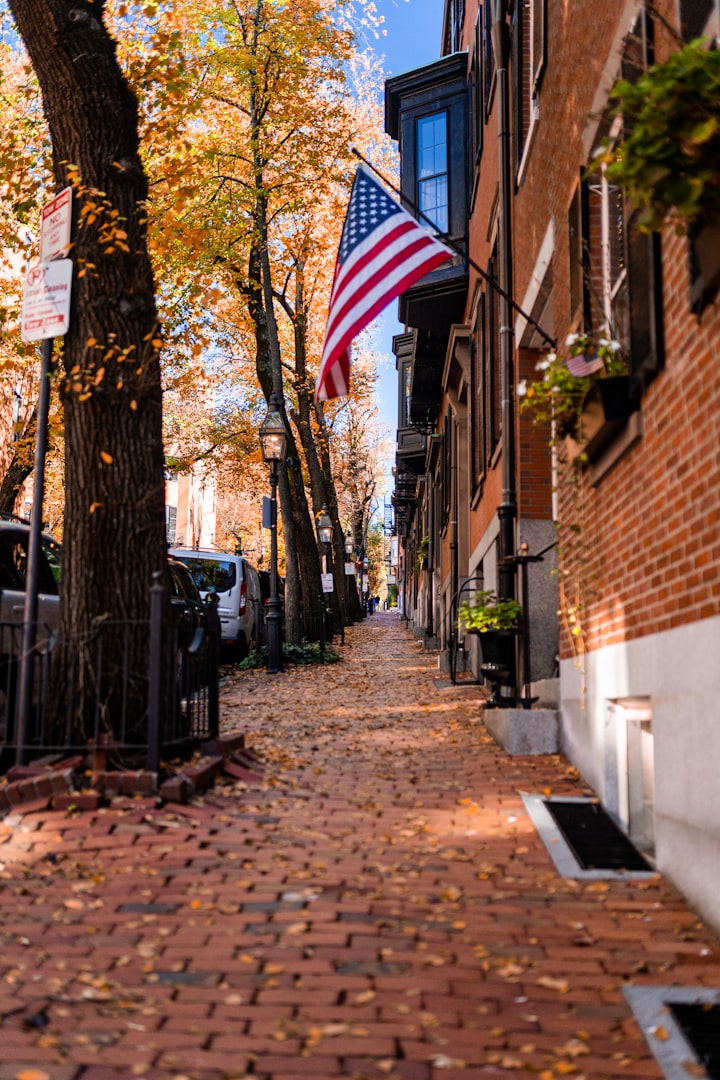Aftermath: The First Ending
The story of parva laminas. One fantastic failed restaurant.
Homer was sure his restaurant, "parva laminas," was going to tear it the fuck up.
The concept? Boston from the years between The Friends of Eddie Coyle and the original Spencer For Hire.
The city as it stood now seemed like it was a thin backdrop to college students' coming of age stories. His restaurant was all about the city when it was cold and scrappy. We're talking about when the Sox were losers and the "local flavor" was a pungent and acquired taste. It was about remembering places long gone, highlighting things tourists could never appreciate.
Nostalgia mixed with local celebrity and a drunken stomach with a fistfight chaser.
Boston has always been a dirty town that wears the clean overshoes of propriety. The "Athens of America," Boston is also famous for banning controversial art, violent desegregation, and legendary crime. This evolved into a city that lacked diversity, a crippling cost of living, and some truly terrible traffic. All these things kept the city from being truly interesting.
What remained was a town was for the well-heeled. The kind of people who promote innovation but that don't instigate cultural change. The city also suffered from "brain drain" and "little brother syndrome" due to its proximity to New York.
Homer over-romanticized the whole thing.
For him, every part of Massachusettes accessible with an MBTA combo pass held precious memories. It was chow mein sandwiches, south shore bar pizza, clam strips, roast beef sandwiches, frappes, jonnycakes, coffee Jell-O, Peking ravioli, anadama, Necco, salt cod, and Fluff.
He wanted to erase the local reputation for brown, boiled, and boring. And he had the skills. But, the problem wasn't really the concept; the problem was everything else… and, well, the concept.
But let's start with the start.
Homer Moustakas grew up between Southie and Dorchester. For almost his entire professional life, he'd worked in restaurants. His parents had been academics, but he was a self-described "restaurant junkie." He was addicted to restaurants in a city not known as a culinary hub. He quickly became a big fish in a small pond and swam at the top of the creme de cuisine.
At 13, he started as a dishwasher at the Todd English restaurant Olives. Homer got the job because he was reliable, and his Uncle was using him to distribute cocaine. The restaurant needed a new supply chain, Homer needed a job. His Uncle made things happen.
For years Homer bragged that he was there when Todd English and Barbara Lynch had their famous fight. English was pissed over Lynch leaving to take the head chef job at Rocco's and threw a coke bottle at her head. Homer swept up the shattered bottle when it missed.

Homer bounced around a lot initially, but once he hit 18, he started in earnest. He did stints with Lynch, Sortun, White, Hammersly, and Shire. His buddy Seiko even got him a stage at Clio once. The chef offered him a job afterward, but Homer turned him down. In response, the chef screamed obscenities until his face turned red.
That guy won a James Beard award.
Homer never really worked outside of Boston. He pulled stages in New York, Portland (both), Los Angeles, and Raleigh. All were excuses to "take a vacation." The only foreign city he'd ever been to was Montreal, and that was for strip clubs and Joe Beef.
He was so local; on cold days, he pissed Hoodsie cups.
Like any edema-eyed cook, Homer wanted his own place. He wanted it to be a culinary history lesson of Greater Boston. Everything from the menu to the design would be an academic barrage of local culinaria. "Townie heaven with Mass appeal" was his corny pitch to potential investors.
In the end, Robin Merlau was the money man who made the place a reality. A few years back, Homer had worked for him at Porter square bistro that failed hard. Homer stayed to the bitter end. One of the last things Merlau said to Homer as it closed was that he'd be watching him and that he, "didn't forget loyalty."
Of course, Homer didn't stay out of loyalty. He stayed because it was February. There was nowhere else to go. He needed the paycheck.

Homer avoided pitching Merlau as long as he could. He was confident that he could convince him to invest. That scared him shitless. Homer had seen up close that Merlau was rich enough to make reckless choices. His inclination was to spend money on the wrong things. Merlau also never trusted anyone else's competence.
With Robin Merlau, Homer would get money, advice, and zero backup. If the restaurant was successful, Merlau might stay at arm's length. If the numbers wobbled, Merlau would pet Homer like Lennie pet puppies.
"Don't do it," warned his friend Seiko.
She now had her own restaurant in Southie, only a mile from where Homer grew up. It, too, had been funded by Merlau at the beginning. Luckily, she bought out his stake within the first year.
"He's a Satanic parrot," she explained, "The only way to fucking shut him the fuck up is by choking him with saltines. Then, when you think he's dead, he comes at you with a speculum chainsaw."
"You've been wronged by parrots and gynecologists, and analogies are not your thing," he replied.
"Listen," she pleaded with him, "Get someone else, anyone else, on board. You need strong people on your side. People who can diffuse him. He's a time-bomb. Don't make the mistake of thinking you can handle him. I made it out because of my other backers."
"Aw, now. This isn't my first rodeo. I've been playing in restaurants for almost thirty years. I want my own sandbox, and Merlau is my means to that end," he quipped.
She looked him straight in the eye and asked, "You know why people get conned?"
He smirked, "No. Why."
"It's not because they're dumb. It's because the con artist knows what that person wants. Then they offer them a path straight to it while hiding every other avenue. As long as you believe Merlau owns your path to success, he owns you."
"You rehearse that?" he asked.
"I think it was from an episode of Leverage?" she said through gritted teeth, "Aldis Hodge is fuckin' hot."
Homer did not want Seiko to be correct. Still, after a year of lackluster and stalled investor pitches, he gave in. He made an appointment with Merlau. But, taking some of her advice, he convinced an old friend, Damon Coburn, to be his General Manager.
"I have faith in you." Coburn said when Homer approached him, "But Money Man Merlau? The man's a cartoon money bag covered in shit."
"Here's the thing," Homer plotted, "We get this started. Then Merlau sticks to his schedule of opening another place in a year. You're my guy, but you can leave and have your own place in about a year if we get this off the ground. Just like that."
Damon had long wanted to open a place with his husband, Matt. He called it his "No White People Coffee Shop." Damon also believed in Homer.
"Okay." Damon agreed. "But I get to build the team from top to bottom. Merlau gets no say in hiring. You build your team, but I get a veto. If I see one of your friends drunk asleep in the walk-in, I cut 'em loose. It's not only about keeping Robin off our backs. This is a real business. You and I are equal partners, and in all things, we must unite against Robin."
Homer smiled wide and grabbed Damon's hand. Their fate was sealed.

The place came together uncharacteristically fast. Part of that was because Robin Merlau pushed his contacts and his cash.
The architecture firm Broseley-Shropshire designed the space. They knew what they were doing. They bought in old booths from the Paddock bar in Sommerville where Whitey Bulger used to hang. They had red-checkered tablecloths and giant fishbowl glassware reclaimed from Durgin Park. There were old theater district signs. This included the Alfred E. Newman-looking creep that had once hung over Jack's Joke Shop. They even located the old-timey cash register from Daisy Buchanans. There were random bricks and seats from the original Boston Garden. Some wall art from the old TGIFridays that long stood on Newbury Street. There were bits of East Coast Gill and the B-side Lounge. Even slivers of Mama Kin and The Rat were worked into the design.
It was cozy with a maze of tables laid out in crooked spokes with a service station hub in the middle. The booths all had partitions that could be raised or lowered into pockets. That way, they could accommodate intimate dinners or open it up for large parties. There were also crazy high ceilings that the designers crossed with green steel. Black iron pendant lights, reminiscent of the Green Line T, hung down as well. It felt like old 93, Fenway Park, and the last train out of Copley, all rolled into one.

Photos on the walls celebrated actors who hailed from the Bay State. James Spader, Kurt Russell, and Chris Evans all made the grade. Yet Neal "Dum Dum Dugan" McDonough got more real estate than "Cap" because he was born in Dorchester. That and Homer used to get drunk with McDonough's cousin Mike. There were no pictures of the Wahlburgers founders, and Ben and Matt were not in the dining room. Instead, there was a picture of Matt over the recycling bin and Ben over the trash can in the back hallway.
This was pure posturing. Homer still had "Good Vibrations" in his iTunes "Menu Mix," and Good Will Hunting had convinced him to stay in Boston at a time when he had considered moving away. If you've seen the movie, you know that Homer hadn't been paying attention.
Steve Carell had a whole shrine behind the bar. It involved a fife and a mailbag. Only two people in the world were allowed to touch these items: Carrell or John Ratzenberger, should they ever come in. Behind it was custom stained glass. It had Mindy Kailing as God, John Krasinski as Joseph, Ed Novak - Mary, and Carell was baby Jesus.
Each table featured an actress from the Boston area that Homer liked. The big ones were Uzo Aduba, Maura Tierney, Jasmine Guy, Shar Jackson, Ellen Pompeo, Madeline Kahn, Diane Guerrero, Lisa Edelstein, Eliza Dushku, Julianne Nicholson, and Jennifer Coolidge.
Homer told people that he chose all these celebrities in the hopes that it'd prompt them to come in.
"You know Madeline Kahn is dead, right?" someone would occasionally point out.
"Not in my heart," he'd respond.

This restaurant was super casual and very, very, very, high concept.
The service style was designed to be quick and aggressive. Dishes were intended to be shared and came out of the kitchen shotgun style. Some specials were also carted around and offered up at random. He got the idea from the Mediterranean-inspired restaurant Sarma, but one of Homer's other favorite places was Empire Garden. Empire was classic Chinatown dim sum served on carts in a cavernous converted turn of the century theater.
This "food as theater" idea was why he featured local actors instead of pictures of Ted Danson, Robin Williams, or Jack Nicholson on the walls. This was about the "real" Boston, not the fictional one from TV and movies.
Even the name "parva laminas" was a taffy pull of an idea that Homer insisted upon. It was Latin. Reminiscent of the academic tradition Boston was famous for. Latin is also a dead language. The restaurant was "resurrecting" dead dishes. The words themselves translated to "small plates" - but only in lowercase. An unusual quirk of Latin is that if you capitalize those words, it changed the meaning to "Little Blade." Knives went with cooking. Homer felt that it all fit together perfectly.
"Why not just call it 'Little Blade?' That's a good name! And it's not weird!" complained Damon.
"I'll lose all the other meanings!" said Homer heatedly, "Besides, What do you eat at 'Little Blade!' It sounds like a place that sells children's cutlery!"
"WHAT DO YOU EAT AT 'PURPLE LLAMAS?!'" Damon roared back.
They agreed to disagree.
There had 127 beers on tap. This included an exclusive apple-roggenbier from Harpoon Brewery called "The Townie Tipple." He'd approached Sam Adams, but they didn't think his restaurant could move enough product to make it feasible.
Sam Adams was correct.
Opening in the late spring. Initial reviews were great. But sooner than expected, nobody came.
Even though winter didn't have the numbers he'd hoped for, Homer was still sure it would be a success. The space was gorgeous, and the food was delicious.

The location was another issue. Located in Boston's South End, it was a block below Washington Street, behind a majestic church. You had to be looking for the place. No one would wander that way accidentally. No one could see it behind the church.
Some folks lived in the area. But most wanted something more upscale. They wanted dinner, not supper. There was a difference.
Everyone else wanted something significantly cheaper.
College students didn't care about the concept. They always said the drinks were overpriced. Older locals either wanted the "real thing" or didn't like the idea of small plates. Some of the dishes were even too obscure for the locals. They'd never eaten outside their bubble. No one knew who Homer was or understood his pedigree. He was known amongst local cooks but not amongst the public.
Most assumed the place was a cash grab by a New York developer pandering to locals.
Common refrains overheard from guests included:
"A Boston-themed restaurant? Is it pizza and subs or seafood?" (College kids, wealthy adults.)
"Isn't 'pareve' kosher? I went to Zaftigs last week." (Southie/Dorchester folks.)
"Where's the regular food?" (Folks from western Mass.)
"Let's get the real thing at Legal." (Parents and young professionals.)
"Why is this so expensive?" (Everyone.)
Damon wanted to fish for a Phantom Gourmet recommendation, but Homer refused. He referred to the Andelmans as a "goofy-voiced cartel."
Homer did deliver on revival. He served extinct classics like the Chez Henri Cuban sandwich and Durgin Park's coffee Jell-O. He even offered something called the "$100 Augustine Dinner Buffet." It attempted to recreate the buffet spread from Augustine's in Saugus. A board that filled the table was packed with things like spinach pie, lobster Newburg, and chicken cutlets with "supreme-sauce."
He was also doing new things with old favorites. He had Parker House rolls served split with beef tartar designed to mimic the Sausage Guy's pepper and onions specialty. You could get candied nuts in a wax paper bag, just like at Downtown Crossing. But this one was spiced like items from Sofra. There was also a pho-inspired bar pizza. Its buttery crust was topped with a Laughing Cow and beef tendon spread, tomatoes, onion, egg, chili, flank steak, and crab paste. It was then broiled until slightly dark at the edges. Finally, it was finished with Thai basil, cilantro, and mint herb oil. There was also a "Duck Sauce Vinaigrette" that staff members stole by the half-deli.
As spring began, other restaurants opened. This included a new food hall with brand extensions of a number of local legends. There were not enough Boston food nerds to sustain a place like parva. At the heart of it, no one felt that they were missing Boston food… while they were in Boston. If Homer had opened in LA with the same theme, he'd likely be zooming into year two.
With business slipping, the restaurant started to peddle through staff, but a number were willing to stick it out.
Then in May, Homer and Damon brought in another manager, Mike, as an AGM. Homer had worked with Mike at a now-defunct spot in Somerville years ago. They weren't close, but they had joked around a lot because, at the time, they both knew they were on a sinking ship. An incredible bond happens when you show up every day to a job you know will fail.
They hoped Mike might free up Damon to throttle Merlau.
Merlau assumed a level of expertise that he was not entitled to. As such, he assaulted Homer with a combination of advice, demands, and threats. Damon tried to intercept the string of bad decisions from Merlau. But, overwhelmed, Homer started ignoring Damon as well.
What was worse, Homer wasn't an expert in the areas that Merlau was harassing him with. It was things like publicity and non-food-related finance. Homer was aware of his ignorance, which only sent him into a tailspin of self-doubt. He relented to his pushy nature in order to stop the noise.
That's when the menu started changing every few days.
At first, it was because Merlau had ideas about what Homer should be selling. Then, one morning Lucus the baker came in to find a 500-pound side of beef laying across Madeline Khan and Jasmine Guy. Merlau got a deal from a friend of a friend, and he shipped it in before telling Homer.
He was tying Homer's hands. Food costs had never been the issue, but Merlau didn't care about what he didn't understand.
Eventually, the menu started changing daily. Distributors began cutting them off for nonpayment. Damon and Homer argued frequently.
But the last straw was a disagreement between Damon and Merlau.
Merlau wanted to use the staff's paychecks to cover vendor costs. Damon refused and said he'd quit if Merlau acted on that. Merlau said he'd sue them both for breach of contract. Damon said he'd report the labor law violation and the payroll discrepancies.

That pretty much settled it. The Thursday before their final Sunday service, Homer and Damon made the call to close and told no one.
On Friday, Damon and Homer got in early, made some calls, then left early to avoid staff. They sent out a text letting everyone know there'd be an all-hands meeting after brunch on Sunday. Alex, and Lenca the Sous, ran a slow service that night and talked about how something was obviously going down.
Homer and Damon spent much of Saturday brunch in a heated conversation while locked in the office. They left before dinner service. All this went largely unnoticed because the day was busy, and every employee was busting ass on the floor.
On Sunday, Alex came in for his shift at three. Damon called him to the office and gave him the news. The bar manager already knew. The rest of the staff sat down at four. They locked the doors at 4:05, and everyone was up to speed by 4:20.
By five, they started drinking, which went on long past the last call.

Facing the reality that they were all unemployed, they mostly laughed.
There was an element of catharsis. No one appeared to be panicking. Either they'd been looking for an excuse to get time off, or they were 99% sure they'd quickly find somewhere to land. Boston is a small town. Word travels fast, and everyone has friends and coattails.
But, some were more upset than others, even if they didn't show it. Understandably, Homer in particular. After too many shots of mezcal, he started chain smoking and babbling.
"I just, I just, I just don't know what to do. This was going to be it. I thought I had my sofa, ug, problem, ug, handled," Homer took a deep drag of his Camel wide.
"That's your problem," responded Alex, only slightly more clear-headed. "The whole point of Fight Club is that the sofa problem is never solved. That's not your problem to solve. Now you go on. You establish project mayhem, and we blow up all the credit card companies."
Homer deflated with an exhale of smoke, "Fuck. The credit cards." He winced, "The loans. I'll be in debt, ug, for the rest of my life, ug."
"The entire staff owes children to Navient," replied Alex, "We're all fucked together."
Homer looked off into the distance. "I need to be alone."
As he walked away, Alex asked Damon, "Should he be alone? I mean, he wouldn't do anything..." He stretched his neck.
"No," responded Damon. "He's still in shock. Mostly he needs to depressurize from the last three months."
"Last three months. Huh," said Alex. He thought about the fact that from the moment he walked in the front door, the place had been falling apart.
As the party progressed, groups spun off. The talk carried between wild and ridiculous to thoughtfully drunk. The general themes were, "This sucks." and "We will be best friends forever!"
The party continued well past the Monday sunrise.
Rosado, who didn't work Sundays, speak English, or text, showed up for his cleaning shift early Monday morning. He had no awareness of what had happened the day before. He walked in the front doors to find the place a total mess. Bacchanal level destruction. The tables were in disarray. Dirty dishes were piled on tables. Bottles were missing from the back bar, and signs and pictures had been pulled from the wall.
He was confused. But the thing that really surprised him was the Steeler's Wheel blaring from the kitchen.
Chef Homer popped his head out of the service window. He clenched a lit cigarette between his lips, his eyes swollen. His ball cap was backward, and he wasn't wearing a shirt. With a huge, shit-eating grin across his face, he called out with a raspy, gabacho colored voice, "ROSADO! Puedo hacerte desayuno? Huevos? Carne?"
Rosado frowned and squinted and pulled out his own pack of Marlboros. He put one between his lips, lit it with his Zippo, and remained silent.
"SI! SI! CÓCTEL!?" yelled Homer excitedly and wiggled his eyebrows and held up his phone, "Todos vienen!!"

TO BE CONTINUED...
_______________________________🐇
More in this Series
A Drink for Wilted Mournings - The perfect drink for a garbage day.
About the Creator
J.S. Kohout
Obsessively thinking about the intersections of food, entertainment, commerce, human nature, and the end of the world.







Comments
There are no comments for this story
Be the first to respond and start the conversation.